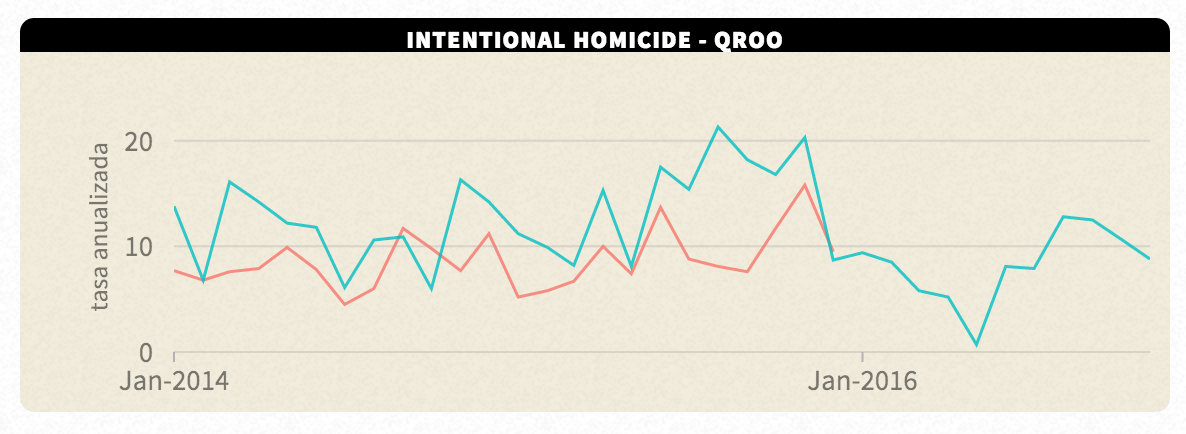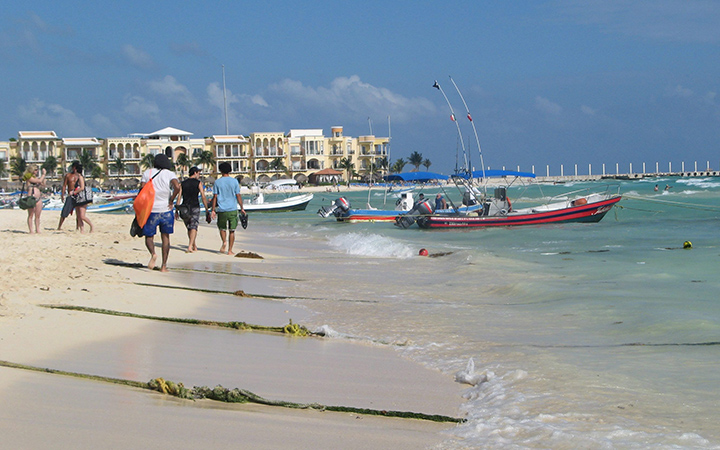Is Playa del Carmen and the surrounding area safe? It’s a question some are pondering after a deadly shooting outside a Mexican nightclub left five people dead Monday, including one Canadian.

The incident happened outside the Blue Parrot nightclub in Playa del Carmen during the BPM electronic music festival, at about 2:30 a.m. Security workers had tried to stop a man from entering the club with a firearm.
Three security personnel, including Canadian Kirk Wilson, were among the victims. Alejandra Villanueva Ibarra, an 18-year-old from Denver, Co., was also killed in the shooting.
The incident was enough to frighten Frederique Villeneuve of Amqui, Que. into never visiting Mexico again.
Villeneuve was at Blue Parrot nightclub when the shooting began and even saw some people killed, she wrote on Facebook.

“I’m never coming back to Mexico,” she wrote on the social network. “Life can take you away in a second we never know!”
Frightening as the incident was, crime statistics from the state of Quintana Roo, where many of Mexico’s most popular resorts are located, don’t provide much cause for alarm.
Statistics gathered by the website Crime in Mexico show that Quintana Roo, the state that is home to popular destinations such as Playa del Carmen, the Riviera Maya and Tulum, had only 12 homicides in November 2016, the latest month for which statistics are available.
That was down from 27 a year earlier; and those numbers are dwarfed by the ones in Guerrero state, which is where Acapulco is located. Homicides there numbered 212 in November 2016.

Get breaking National news
Quintana Roo’s homicide rate was 7.66 per 100,000 people up to November, about half of Mexico’s national rate, which was 15.7 per 100,000 people, Business Insider UK reported.
That’s higher than the homicide rates in Vancouver (2.43), Toronto (1.91) and Montreal (1.5) in 2015, the most recent year for which Statistics Canada has data.
But it stands in stark contrast to Chicago, whose 2015 homicide rate was 18 per 100,000 people, The New York Times reported. New York’s own homicide rate was four per 100,000 people.
READ MORE: Canadian among 5 dead in shooting outside nightclub in Mexico
Villeneuve may have been turned off Mexico for good, but other Quebecers who frequent Playa del Carmen hope tourists keep visiting, The Montreal Gazette reported.
Snowbirds, or people who move from cold to warmer climates in the winter, have flocked to the Riviera Maya and Playa del Carmen for years. They have set up businesses such as hotels, restaurants and car rental shops.
One of them, Daniel Gingras, said he’s felt safer in Playa del Carmen than he did living in Montreal.
“In Montreal, you have the mafia and the Hells Angels. Here it’s the cartels,” Gingras told the Gazette.
The shooting, he said, could have happened “anywhere.”
But one doesn’t have to look too far back in history to find examples of Canadians involved in disturbing incidents and circumstances in Playa del Carmen and the surrounding region.
Here are three examples:
- The dismembered remains of St. Catharines, Ont. native Lori Archambault being found in two suitcases in Playa del Carmen last July;
- Last year’s strangling death of B.C. photographer Barbara McClatchie outside Merida, the city in Yucatan state where she made her home;
- The deaths of Woodbridge, Ont. residents Domenic and Nancy Ianiero, who were discovered with their throats cut at a resort close to Playa del Carmen in 2006.
Another incident saw Grande Prairie, Alta. resident Jeff Toews die after his family said he was beaten to death at a Cancun resort in 2007, The Toronto Star reported.
Mexican authorities, however, said he fell from a balcony on a hotel’s second floor after partying at a nightclub there. A toxicology analysis found cocaine in his system.
None of this has been enough to dissuade tourists from visiting Mexico, The Toronto Sun reported after the discovery of Archambault’s remains.
People travelling to the country have treated the incidents as “one-offs.”
Security expert Walter McKay said that 1.6 million Canadian tourists travelled to Mexico in 2011 and only six deaths happened. They were blamed on robberies or falls from balconies.
“The problem with the news media, if it bleeds, it leads, and we’re always getting the bad news.”
The Blue Parrot shooting has nevertheless put some travel authorities on alert.
The U.K. updated its travel advisory for Mexico with some details of the incident. While it noted that there were no British casualties in the shooting, it instructed people to contact the country’s Foreign and Commonwealth office if they were concerned about any loved ones.
Meanwhile, the United States does not have a travel advisory in effect for Quintana Roo, though it does warn its citizens to “exercise caution” when travelling east of Jose Maria Morelos or south of Felipe Carrillo Puerto.
Canada’s own travel advisory for Mexico is regionally-focused, and doesn’t have any warnings for Quintana Roo.
It does make note of the Blue Parrot shooting in the advisory’s “Safety and Security” section, though it says that crime at resorts and major tourist destinations “isn’t nearly as high” as other parts of the country.
- With files from The Associated Press















Comments
Want to discuss? Please read our Commenting Policy first.